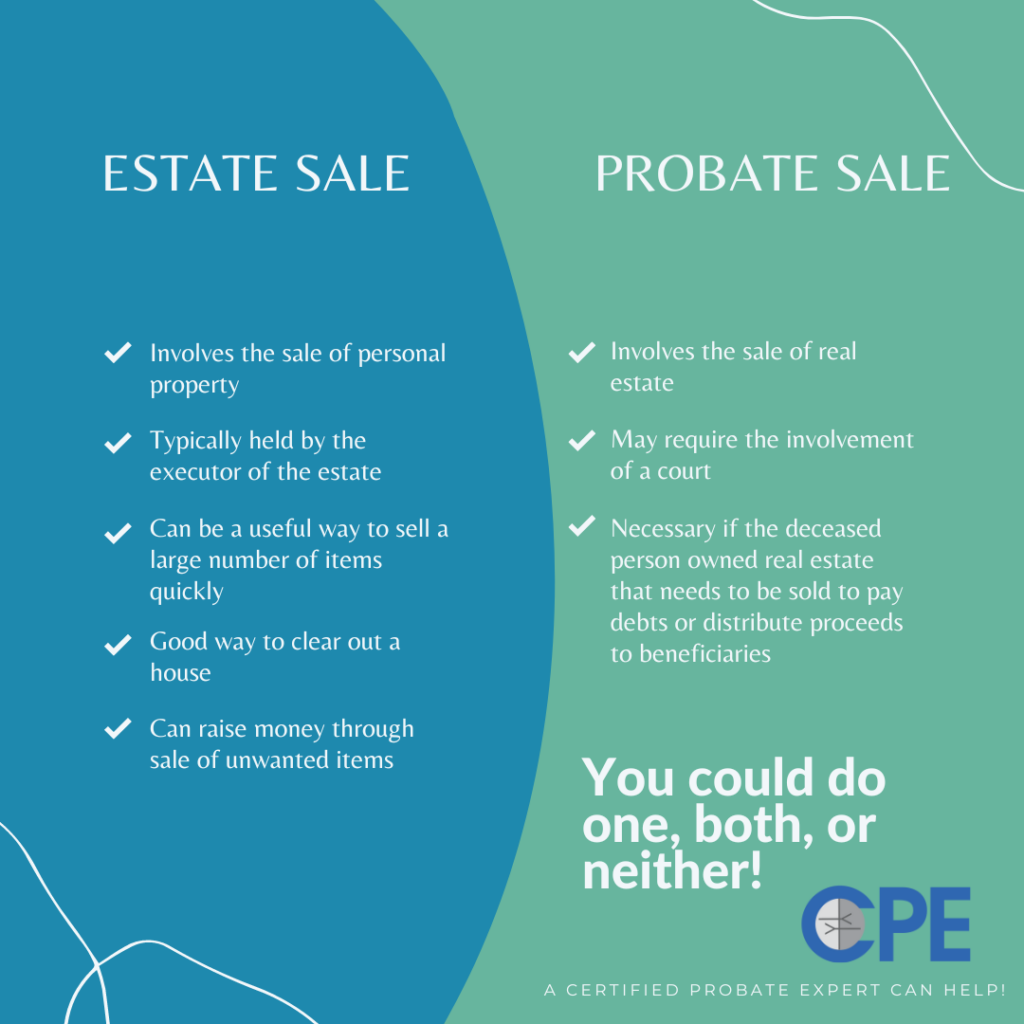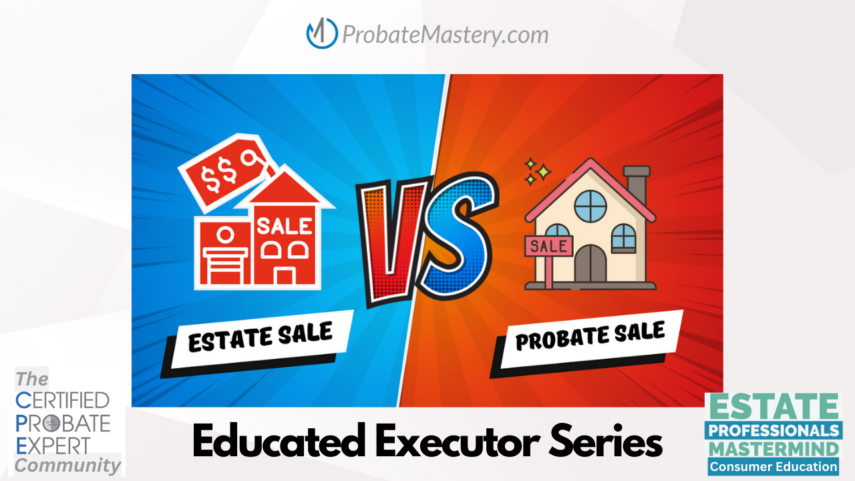We’re ending the estate sale vs. probate sale debacle! Estate sales and probate sales are two different ways to sell the assets of a deceased person. The terms can be mixed and mingled in every day conversation, and there is a bit of overlap in what they are. Understanding the differences between the two is easy, and can be helpful when you’re navigating the process of selling a loved one’s property or managing an estate!
What is an Estate Sale?
An estate sale is a sale of the personal property and assets of a deceased person. This includes items like furniture, artwork, collectibles, jewelry, and other personal belongings. An estate sale is typically held by the executor of the estate, who is responsible for managing and distributing the assets of the deceased person.
What is a Probate Sale?
A probate sale, on the other hand, is a sale of real estate that is ordered by a court. Probate is the legal process of settling a person’s estate after their death, and a probate sale may be necessary if the deceased person owned real estate that needs to be sold in order to pay off debts or distribute the proceeds to beneficiaries.

How Does Each One Work?
An estate sale typically takes place in the home of the deceased if it’s still open. A specialist will come and evaluate all unsold possessions along with items that may be stored away in locked rooms, closets, sheds and garages. They will appraise them, create a price list, advertise, and stage the items for sale. On the day of the sale they’ll handle everything from staffing to cashiering to security. A probate sale works differently – it is usually handled by an attorney and personal representative who are handling probate at the same time, listing out the details about the property in court documents for public record before selling it.
What Are the Key Benefits of Each Option?
Benefits of an Estate Sale
Estate sales are a great way to allow friends, family, and the community to purchase items that the deceased had a personal connection with. They are also useful for selling off a large number of items quickly, particularly if the items are worth a significant amount of money. Cleaning out a property may be necessary to move forward with the sale of a home or to raise money for expenses.
Benefits of a Probate Sale
A probate sale may be necessary when there is no one who would like or is able to hold an estate sale in order to liquidate assets quickly for creditors and for family members awaiting inheritance. For this reason, probate sales can usually secure higher prices since buyers know there will be less competition than at an estate sale.
How Do I Know Which One to Use?
The type of sale you should use will depend on the specific assets you are looking to sell and the circumstances of the estate.
If you are looking to sell personal property, such as furniture, artwork, collectibles, and other belongings, an estate sale may be the best option. Estate sales are typically held by the executor of the estate, who is responsible for managing and distributing the assets of the deceased person.
If you are looking to sell real estate, such as a house or other property, during the probate process, you’ll be doing a probate sale. A probate sale may be necessary under a court order, to pay off the estate’s debts, and/or distribute the proceeds to beneficiaries.
It’s important to note that both estate sales and probate sales can be complex processes, and you may want to seek the help of a professional, such as an attorney or a Certified Probate Expert, to assist you. They can help you navigate the legal and logistical aspects of both types of sales and ensure that everything is handled correctly.
Search for professionals in the EstateProfessional.org Directory.
In summary, an estate sale is a sale of personal property, while a probate sale is a sale of real estate as part of the probate process. If you ever need clarity on which someone is referring to, simply ask: “Do you mean real property or personal property?” And, problem solved. 🙂

